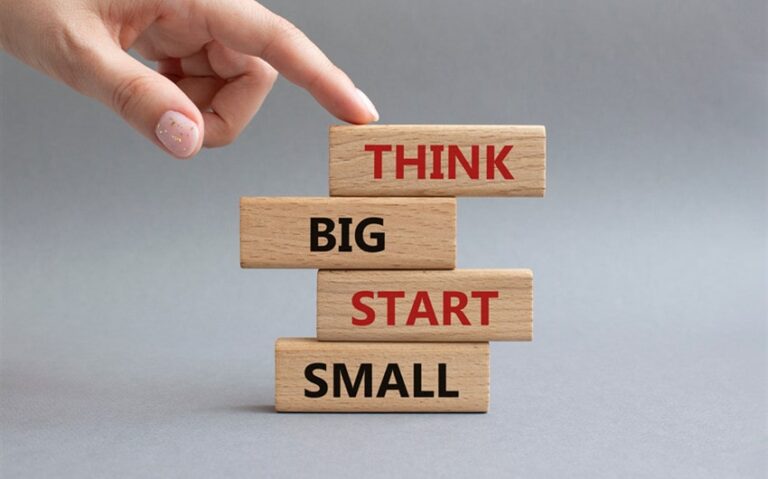The Lessons Hidden in Everyday Chaos
There are mornings when it feels like the world has conspired to test your patience. You spill your coffee, misplace your keys, the phone won’t stop buzzing, and your to-do list already feels impossible before the day has even started. It’s easy to think of these moments as signs of disorder—tiny pieces of chaos that interrupt the flow of life.
But lately, I’ve started to wonder: What if chaos isn’t the problem? What if it’s a quiet teacher, nudging us toward lessons we’d never learn in perfect conditions?
Everyday chaos has a strange rhythm to it. It’s unpredictable, inconvenient, and often uncomfortable—but buried inside those messy moments are the reminders we need most: to slow down, to listen, to let go, and to trust that not everything needs to make sense right away.
The Nature of Chaos
Chaos isn’t just the clutter on your desk or the noise in your mind—it’s the tension between what we expect and what actually unfolds. It’s life’s way of reminding us that we’re not entirely in control, that we’re part of something fluid and alive.
In the past, I treated chaos like an enemy to be defeated. I’d plan my days meticulously, try to keep every variable neat and predictable. But life, of course, has other plans. It spills, interrupts, reroutes. Eventually, I realized that trying to eliminate chaos was like trying to stop the tide with my hands.
The truth is, chaos is movement. It’s the moment before clarity, the friction before change. When everything feels uncertain, it often means we’re standing at the edge of transformation. It’s not comfortable—but it’s honest.
Lesson One: Control Isn’t the Goal
Most of us are raised to believe that control equals success. If you can manage your time, emotions, and environment, you’re doing life “right.” But the more I tried to control everything, the less room I left for life to surprise me.
Chaos taught me that control isn’t the goal—trust is.
A few months ago, I had a week where everything seemed to collapse at once. Deadlines piled up, a family emergency demanded my attention, and all my carefully crafted plans went out the window. At first, I panicked. Then something shifted. I realized that I couldn’t force order, but I could choose how to show up inside the disorder.
When I stopped fighting the mess and focused on the moment right in front of me, things started to soften. I still had problems to solve, but I wasn’t consumed by the idea of perfection anymore. I found peace in accepting what I couldn’t fix—and that acceptance became its own kind of order.
Letting go of control doesn’t mean giving up; it means releasing the illusion that we ever had it.
Lesson Two: Presence Is the Antidote
Chaos thrives in the future and the past. It multiplies when our minds replay what’s gone wrong or worry about what might. The antidote, I’ve found, is presence.
There’s a small space between what happens to us and how we respond. In that space lies the power to choose calm over panic, patience over reaction. It’s not easy—it’s a skill that requires practice—but it’s life-changing.
When things feel chaotic now, I try to return to the simplest form of awareness: my breath. It’s the one constant rhythm in the noise, a reminder that I’m here, alive, and capable of facing this moment.
Sometimes presence looks like pausing before answering a tense email. Sometimes it’s sitting in traffic without letting your mind spiral. Sometimes it’s just noticing the way sunlight hits your kitchen table in the middle of a messy morning.
The more we anchor ourselves in the present, the less power chaos has to pull us apart.
Lesson Three: Growth Hides in the Mess
If we’re honest, chaos feels like failure. We assume that a “balanced” life is quiet, predictable, and graceful. But in reality, growth rarely happens in stillness—it happens when we’re stretched, tested, and slightly undone.
Think about the moments that changed you most. Chances are, they didn’t come when everything was easy. They came during the confusion, the heartbreak, the exhaustion—the times when you had to face yourself and choose who you wanted to be next.
Chaos, in that sense, isn’t punishment. It’s the process of becoming.
When life rearranges itself in ways we didn’t expect, it often reveals what truly matters. The noise forces us to prioritize, to simplify, to rediscover what we value. It burns away what’s unnecessary so that something stronger can emerge.
I’ve started to see the mess not as something to fear, but as proof that I’m still growing. That I’m still paying attention. That I haven’t given up on becoming better.
Lesson Four: Gratitude in the Unlikely Places
It’s hard to be grateful for chaos while you’re standing in the middle of it. But once it passes—and it always does—you start to see its purpose.
You realize that the missed opportunity led you somewhere better. That the delay gave you time to rest. That the argument cleared the air. That the setback revealed a strength you didn’t know you had.
When you look back, the dots connect. Chaos, as wild as it feels, often redirects us toward alignment.
So these days, I try to practice small gratitude even inside the storm. It’s not about pretending everything’s fine—it’s about acknowledging that something valuable might still be unfolding beneath the noise.
Gratitude turns chaos into clarity. It shifts the focus from what’s wrong to what’s real.
Lesson Five: Simplicity Is a Form of Strength
Chaos thrives on excess—too many choices, too many expectations, too much noise. One of the best lessons I’ve learned from it is the power of simplicity.
Simplicity doesn’t mean having less; it means needing less. It’s about clearing emotional clutter, cutting unnecessary obligations, and allowing more space for what truly nourishes you.
When life feels overwhelming, simplicity brings you back to center. It’s the small rituals that ground you—a quiet cup of tea, a walk outside, journaling for five minutes before bed. These small anchors remind us that even in chaos, peace is still accessible.
Simplicity gives chaos fewer places to hide.
Closing Thoughts: Seeing the Pattern in the Noise
Everyday chaos is unavoidable. Life will always surprise us, undo us, and stretch us. But when we stop treating chaos as a failure and start seeing it as part of the process, everything changes.
It teaches us flexibility when plans fall apart. It builds our patience when timing doesn’t align. It deepens our gratitude when order finally returns.
Maybe chaos isn’t the opposite of balance—it’s the raw material from which balance is built.
The next time your day unravels, pause. Instead of rushing to fix it, ask: What is this trying to teach me? You might be surprised by how much wisdom hides in the noise.
Because sometimes, the messiest moments are the ones that make us whole.




